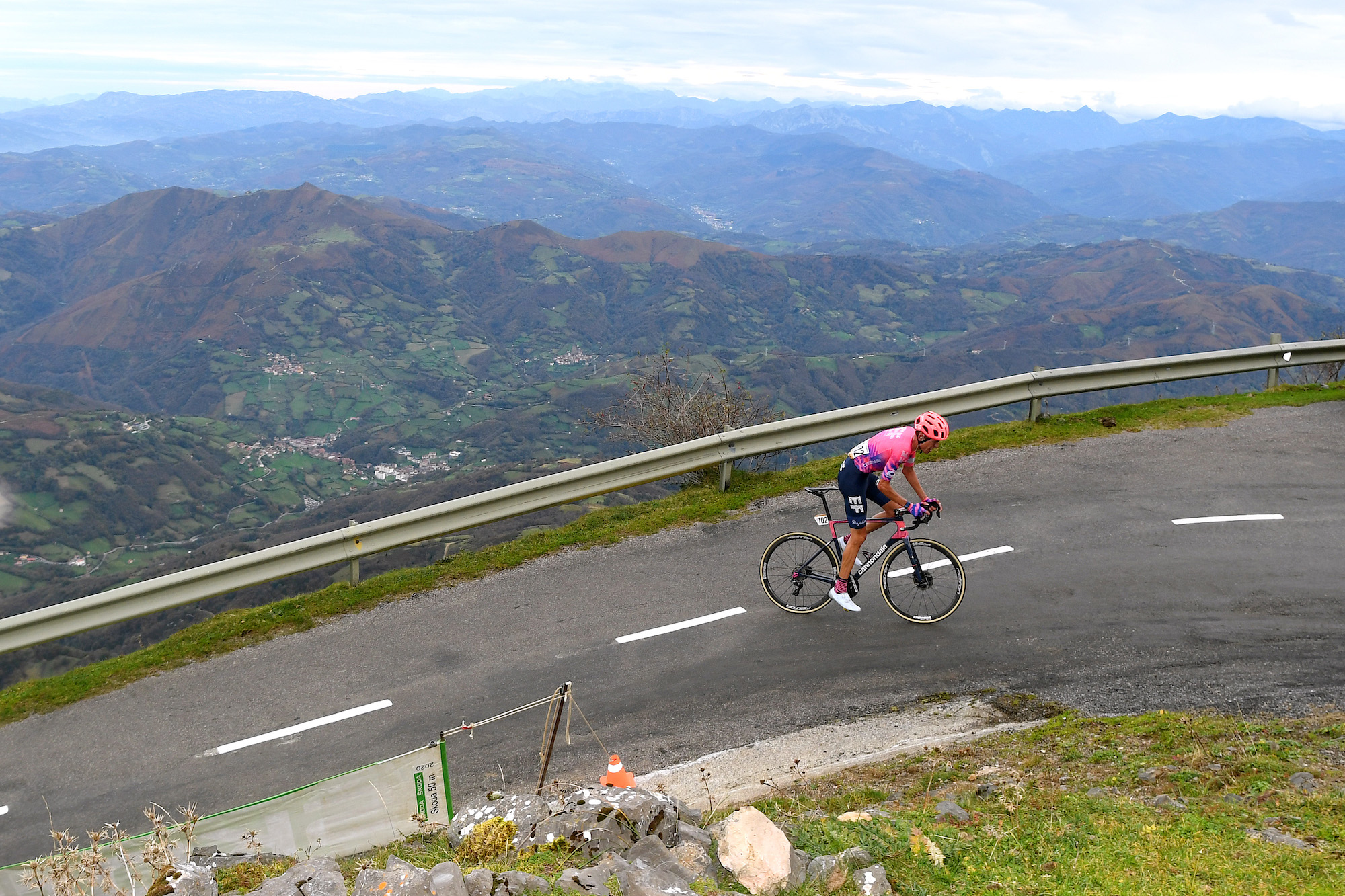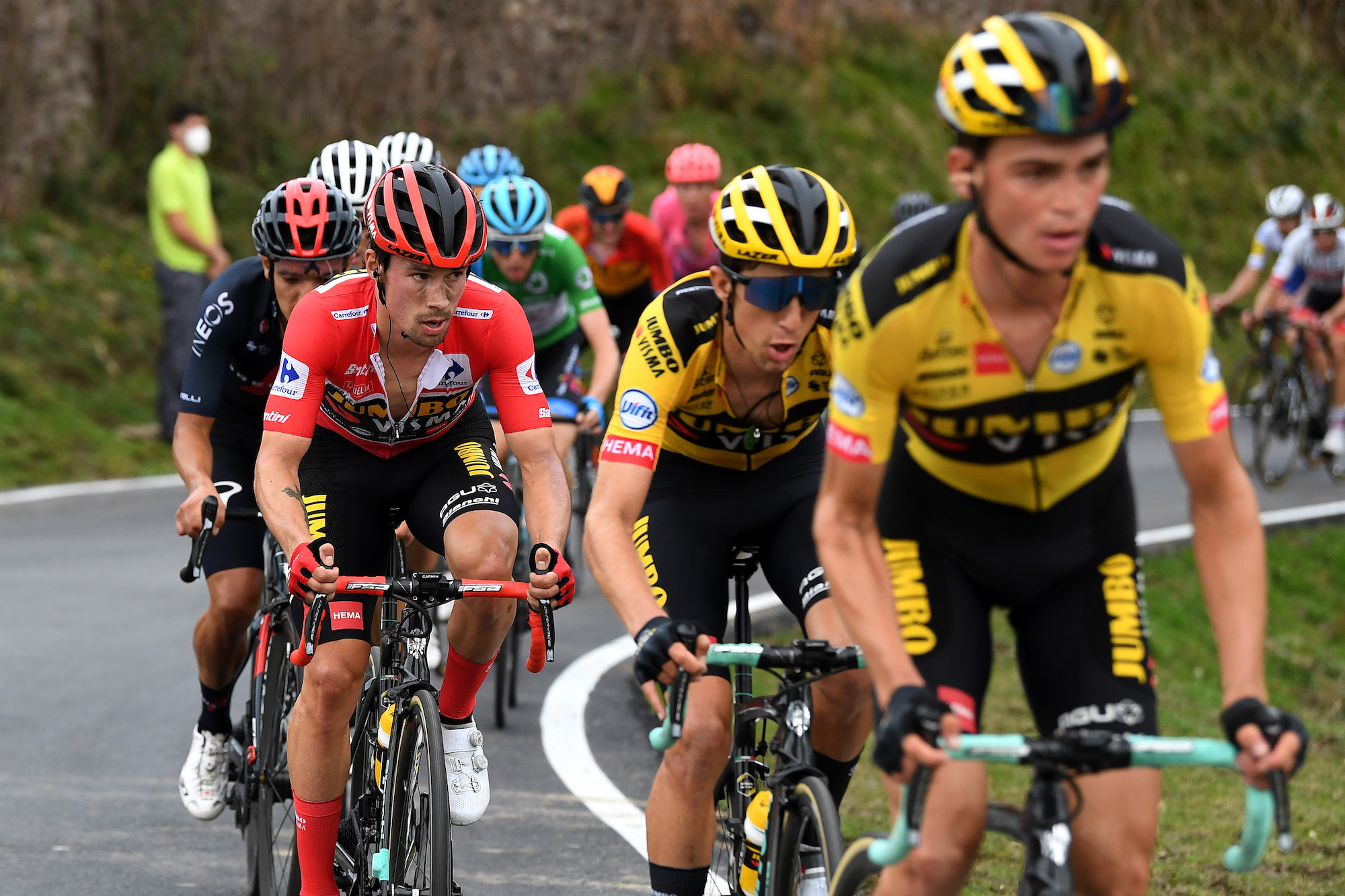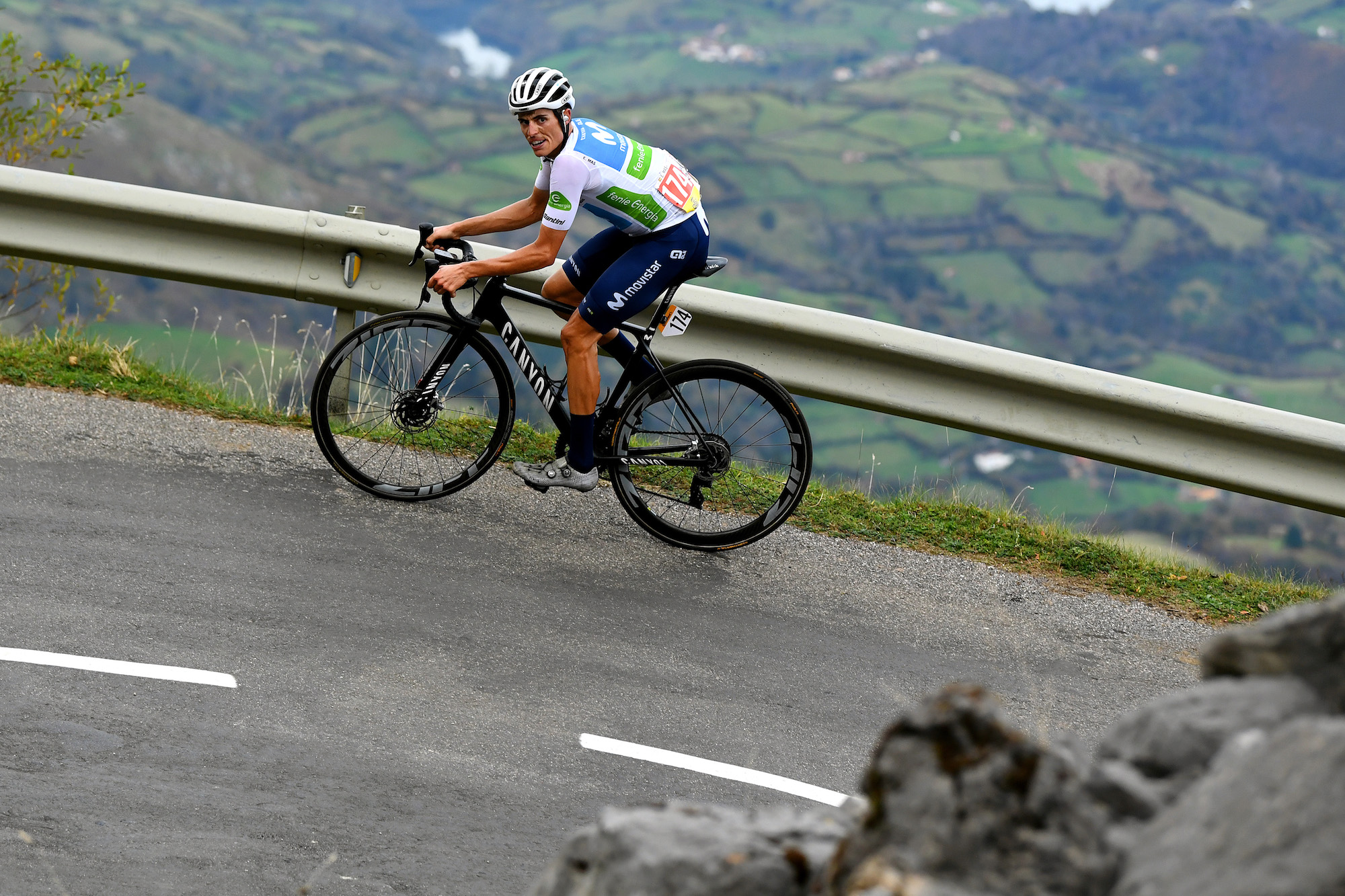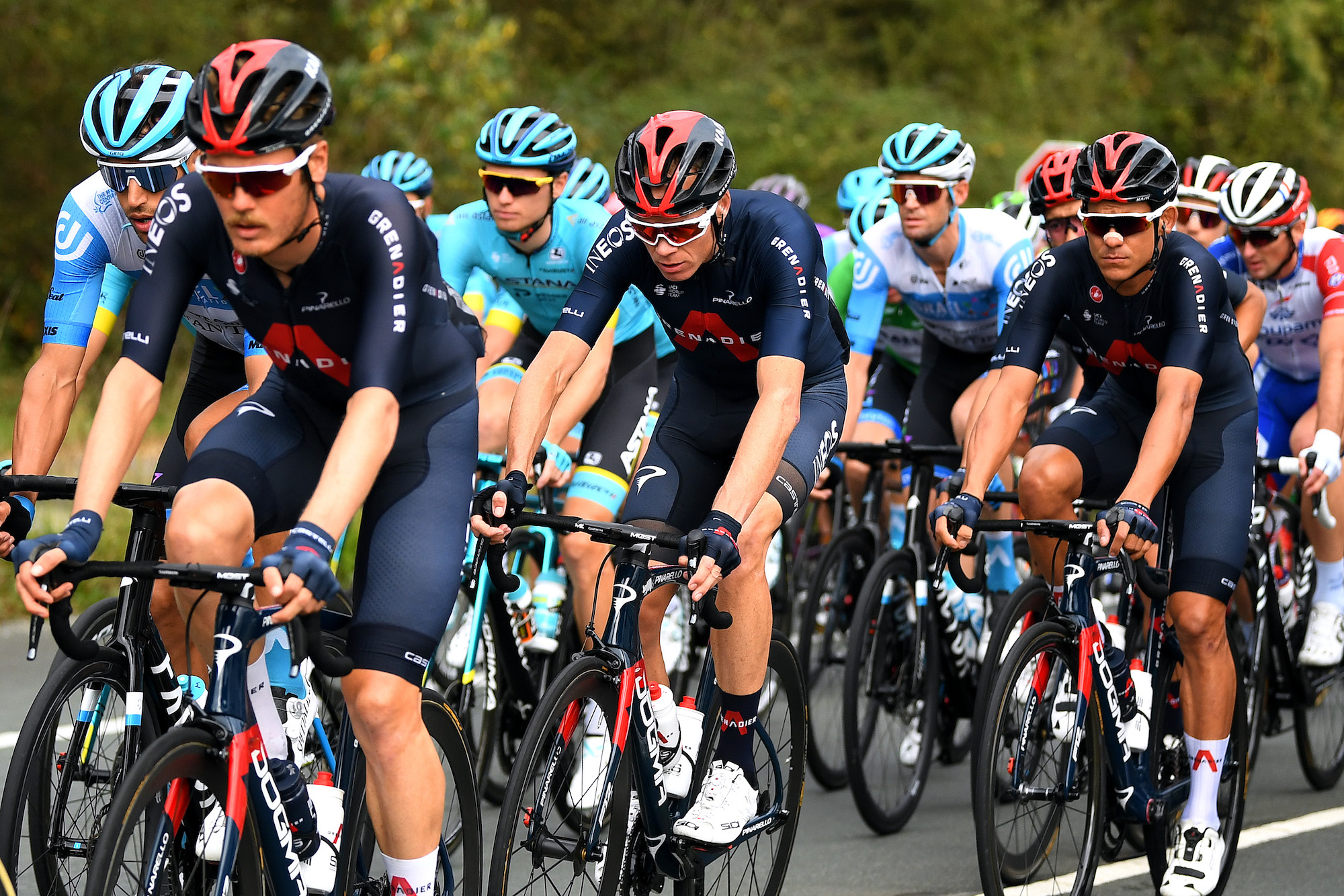Five talking points from stage 12 of the Vuelta a España 2020
The Angliru didn't disappoint as Carthy took the victory
Hugh Carthy’s glorious day

If it was not already apparent that Hugh Carthy has rapidly become one of the best climbers in the peloton, it certainly is now.
The Preston-born 26-year-old had already been enjoying a breakthrough Vuelta a España, riding consistently on the climbs to place fourth overall before today, but today he reached a whole other level with victory atop the Alto de l'Angliru.
The Angliru is one of the most revered climbs in cycling, and among the list of past winners here include such icons of 21st century cyclists as Roberto Heras, Gilberto Simoni and Alberto Contador. No-one would have put Hugh Carthy in the same league as these names a few weeks ago, but the 26-year-old has come on leaps and bounds these past couple of weeks and was today a worthy winner.
"To win in a Grand Tour on a mythical climb, it doesn’t get better than that," he said, although in his typically understated drawl it sounded as though he was taking the win very much in his stride.
The result means he also rises up to third overall, leapfrogging Dan Martin (Israel Start-Up Nation) on the overall classification. A podium finish is now his to defend —and, with overall leader Richard Carapaz (Ineos Grenadiers) now just 32 seconds ahead of him, could overall victory even be on the cards?
Carapaz into red — but for how long?
The latest race content, interviews, features, reviews and expert buying guides, direct to your inbox!

There was a change at the very top of the classification as Richard Carapaz (Ineos Grenadiers) — having lost the red jersey in controversial circumstances two days ago — again took the overall lead from Primož Roglič (Jumbo-Visma). But the Ecuadorian might be left lamenting having not gained more time than he did.
There was little to choose between both riders for most of the climb, as each remained together in the small group of favourites led by Sepp Kuss (Jumbo-Visma), while Enric Mas (Movistar) attacked. Only in the last two kilometres, when the relentlessly steep gradients saw all the riders spread across the road in ones and twos, did Carapaz manage to open up a significant gap over his rival, and from that moment on committed everything to maximising his advantage.
Despite at last cracking the previously unflappable Slovenian, Carapaz was ultimately able to gain only 10 seconds on him, and will be additionally frustrated at having lost out on the bonus seconds to Alexander Vlasov (Astana) and Enric Mas in the sprint to the line for second and third place.
Roglič will be expected to comfortably overturn that deficit of ten seconds on Tuesday’s time trial, if both riders’ history against the clock is to be relied upon. If Carapaz wants to win the red jersey, he’ll have to ride aggressively in the final week.
Superb team-mates keep Roglič in pole position

Roglič might have suffered a hard time on the Angliru, but thanks to his team-mates he remains in pole position to win the red jersey.
As ever, the invaluable Sepp Kuss was his star helper, staying by his side up the whole climb. For most of the ascent the American appeared to be stronger than his leader, at one point unintentionally opening a small gap over him, but managed to tailor his pace-setting to one Roglič was more comfortable with.
His supportive presence, and help pacing Roglič, meant the Slovenian limited his losses, and might just have saved him the Vuelta.
Kuss wasn’t the only Jumbo-Visma rider deserving of praise. At the start of the Angliru most of the team still remained at the front of the greatly-reduced peloton, and on the climb itself Jonas Vingegaard produced a star-making ride.
The 23-year-old hadn’t made as much of an impression on the race as some of his Jumbo-Visma team-mates but must have been saving himself up for today, as he put in a jaw-dropping performance to whittle the peloton down to just nine riders, only running out of legs and swinging off the front when Enric Mas made an attack 3.5km from the top.
His ability to ride at a tempo quick enough to deter any attacks but manageable enough to prevent Roglič — who, as we learned later up the climb, was not on as good a day as his rivals — from going into the red was similarly essential to defending his leader on what was his toughest test at this Vuelta so far.
The Angliru delivers on the hype

This was billed as being the most important and spectacular stage of this year’s Vuelta, and the final climb did indeed deliver on the hype.
After the likes of Movistar, Jumbo-Visma and Ineos Grenadiers had done so much work earlier in the stage to keep the day’s earlier breakaways in check, the stage boiled down to a showdown between the GC favourites on the Angliru, and it turned out to be thrillingly close.
Compared with previous battles on the Angliru, this was an unusually evenly-matched affair. For much of the climb Roglic, Carapaz, Carthy, Martin, Mas, Kuss and Vlasov all remained tightly bunched together, with some riders occasionally drifting a little off the front and others occasionally drifting a little off the back, only for them all to return to being bunched together again.
Only Enric Mas spent a significant amount of time in front of the others after he attacked 3.5km from the finish. Even accounting for the way the extreme gradients made gaps look smaller than they actually were, though, he was only ever able to gain a handful of seconds over the rest and was ultimately caught and passed by a flying Hugh Carthy.
At the finish line, just 26 seconds separated Carthy in first and Dan Martin in seventh, making this the closest-ever finish on the Angliru.
The absence of any crowds might have dampened the atmosphere, but this was still a memorable stage.
Froome puts in his best post-injury performance to date

Stage twelve wasn’t just about the Angliru. Before that climb the riders had to get over four more climbs, two of them category ones, and by the time the peloton reached the Angliru it had already been dramatically thinned down to just a handful of riders.
One of the riders responsible for shedding so many riders from the peloton was Chris Froome (Ineos Grenadiers). The two-time Vuelta winner began this race slowly, losing any hope of a GC campaign when he lost time on the very opening stage, but has since been quietly, gradually improving, and today was his best performance yet.
Froome set a searing pace on the penultimate climb of the day, managing to drop several riders who had earlier in the race been outperforming him — including most significantly of all, Marc Soler (Movistar), who as a result drops way down from sixth to nineteenth overall.
This was the closest we’ve seen to Froome at his best since his return from injury and a sign that he’s still on the right track in his recovery. We haven’t seen the last of Froome just yet.
Stephen Puddicombe is a freelance journalist for Cycling Weekly, who regularly contributes to our World Tour racing coverage with race reports, news stories, interviews and features. Outside of cycling, he also enjoys writing about film and TV - but you won't find much of that content embedded into his CW articles.